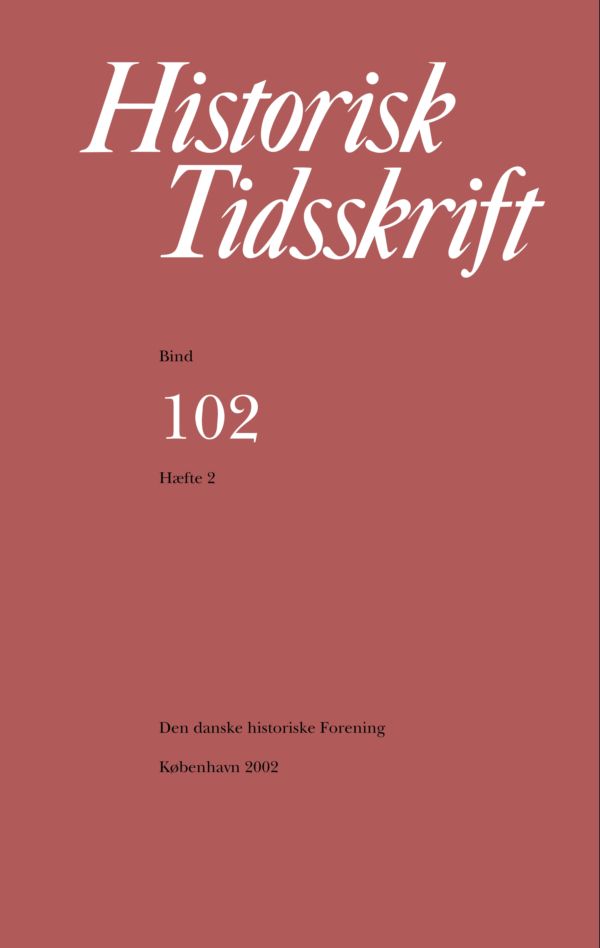Maleficium ò »abuso di sacramento«? Konsensus i kardinal Scaglias inkvisitionsmanual og den posttridentine kirkes forståelse af trolddom i Italien 1560-1620
Resumé
Maleficium ò "abuso di sacramento"? Consensus In Cardinal Scaglia's Manual and the Post-tridentine Church's Understanding of WitchcraftFor the Roman Inquisition papal bulls and decrees were the official law, but in dealing with superstition it was, in addition, also influenced by its own internal guidelines. These were found in manuals, which provided counsel on correct procedure in treating the crimes subject to its jurisdiction. One of these manuals, written around 1620 by a former inquisitor, Desiderio Cardinal Scaglia, contains a discussion of superstition. Some thirty years earlier Pope Sixtus V had issued the bulle Coeli et Terrae, which was especially directed against magical rites and warned against the common superstitions of country villagers. Such rites were not designated as heresy in the traditional sense of the term, but they were deemed erroneous and unlawful conceptions of Christian faith. An analysis of Scaglia's chapter on witchcraft supplemented with examples from closely examined trials shows that his manual accorded well with the stipulations of the papal bull regarding the correction of the populace's aberrations.The crucial concept in Scaglia's work is superstitione. For the post-Tridentine Church the concept always involved magic, and magic could only be practised by denial of the Catholic faith and in pact with the Devil. This implied that the villager's common superstitions, of which Sixtus had warned, were the result of an individual's denial of Christianity and a pact with the Devil. These were inseparably connected, but Scaglia distinguished between an explicit and an implicit pact, i.e., conscious and non-conscious. In order to determine the nature of the pact, it was crucial according to Scaglia to discover the intention behind magical arts. This meant that the inquisitor had to examine whether the accused had, first of all, been aware of the magical element in his or her deed, and then whether he or she knew that magic was premised on the denial of Christianity and a pact with the Devil. A number of studies have shown that most villagers were unaware that magic presupposed a liaison with the Devil, and they claimed that they had never intended to deny their faith. For Scaglia intention was therefore the decisive factor in determining the question of guilt. The post-Tridentine Church considered the rural population as ignorant and in need of guidance in attaining a correct understanding of the Catholic faith. It was not to be expected that the common man was versed in Church doctrine, and this was one of the reasons why Scaglia as well as the rest of the Inquisition worked with the concept of an implicit pact. They were fully aware that the rural villages, whatever the everyday practice of magic, were not populated by Devil worshippers. The question of intention together with the distinction between an explicit and an implicit pact was influential, on the one hand, in reducing the number of sentences for diabolical witchcraft and, on the other, in providing the Inquisition with grounds for condemning people for common superstition. In practice, it would seem that the Inquisition gave great attention to the education of the populace. Desiderio Scaglia warns against the practitioners of magic who misuse the Church (abuso di sacramento), an offense which like the pact can be divided into explicit and implicit. The worst form of magic was witchcraft (stregoneria), for the witch's intention in the use of magic was to cause harm and in the exercise of magical rites to wilfully desecrate the Church. The witch had entered into a pact with the Devil and was therefore subject to the severest punishment de formali. The death penalty, however, need not be the inevitable outcome for one condemned for explicit magic. Scaglia explains that if, for instance, the accused sees the error in believing that free will can be coerced, he or she can be sentenced more clemently to recant de vehementi. In the case of an implicit pact the inquisitor should sentence the accused to recant de levi, the mildest form. Paradoxically, the Church's and the Inquisition's conception of the common people as ignorant masses led to a significant reduction in the number of executions for witchcraft. Although many were accused of witchcraft and other acts of magic, Scaglia's manual lent support to the Inquisition (and therewith the Catholic Curch), when it chose to persuade the accused to recognise the errors in his or her sinful acts rather than sentence to the death penalty for diabolical witchcraft.Translated by Michael WolfeDownloads
Publiceret
Citation/Eksport
Nummer
Sektion
Licens
Ophavsret til bidrag i Historisk Tidsskrift tilhører forfatterne og Den danske historiske Forening som udgiver af Historisk Tidsskrift. For illustrationer gælder den ophavsret, som står anført i billedteksten. Ophavsretslovens almindelige bestemmelser gælder, hvilket vil sige, at ophavsretten gælder i 70 år efter forfatterens død. Bidrag i Historisk Tidsskrift må derfor, med forbehold for en ”moving wall” på tre år, frit downloades, læses, gemmes, anvendes og citeres (med kildeangivelse) i privat og videnskabelig sammenhæng, men de må ikke helt eller delvis genudgives af tredjepart, heller ikke i redigeret form, uden tilladelse fra forfatterne og Den danske historiske Forening. Henvendelse skal i så fald rettes til Historisk Tidsskrifts redaktion på histtid@hum.ku.dk.





